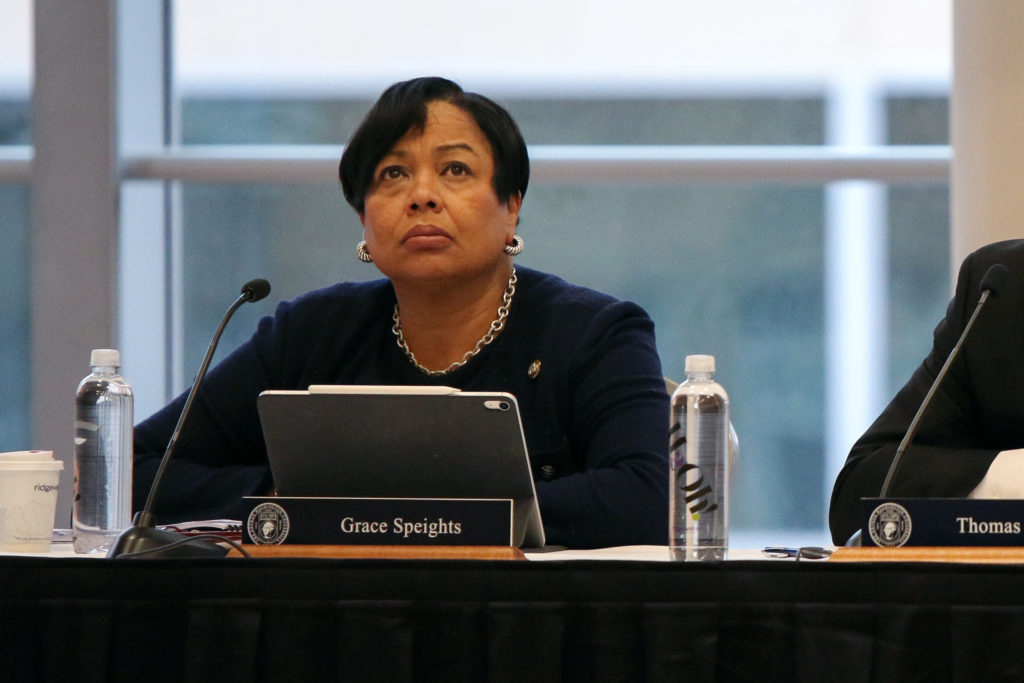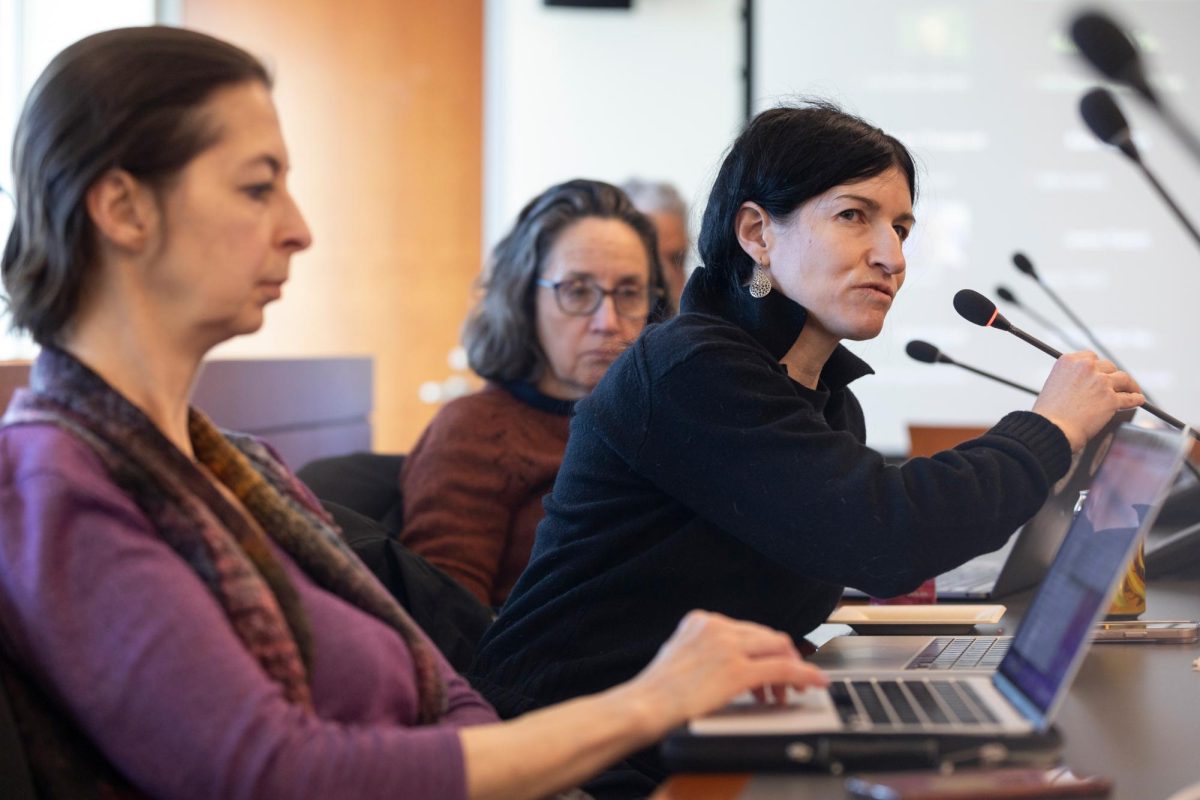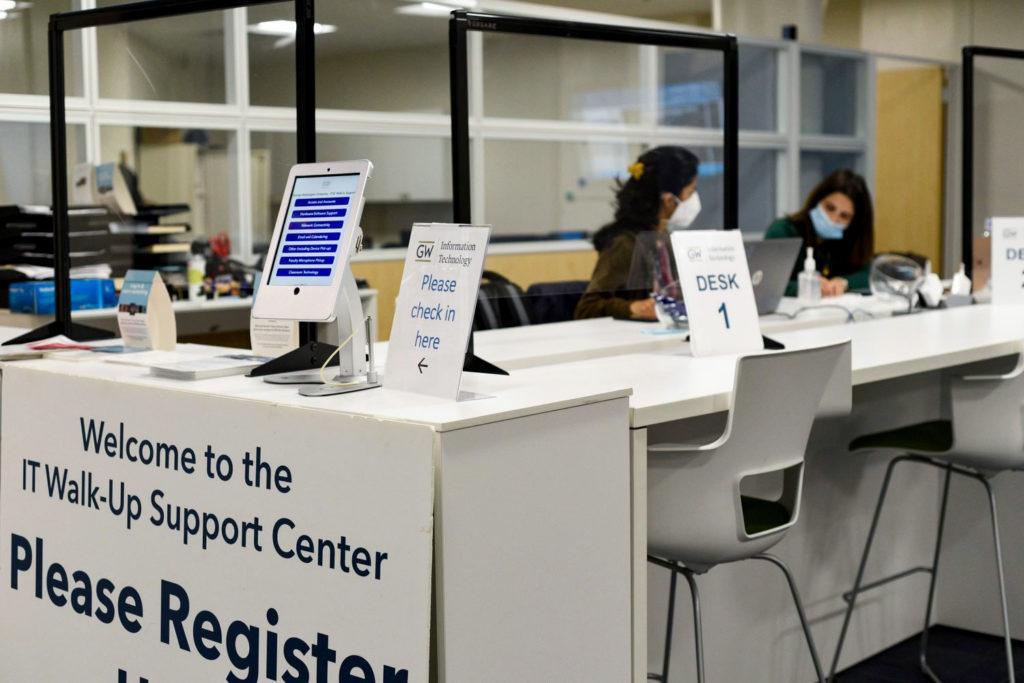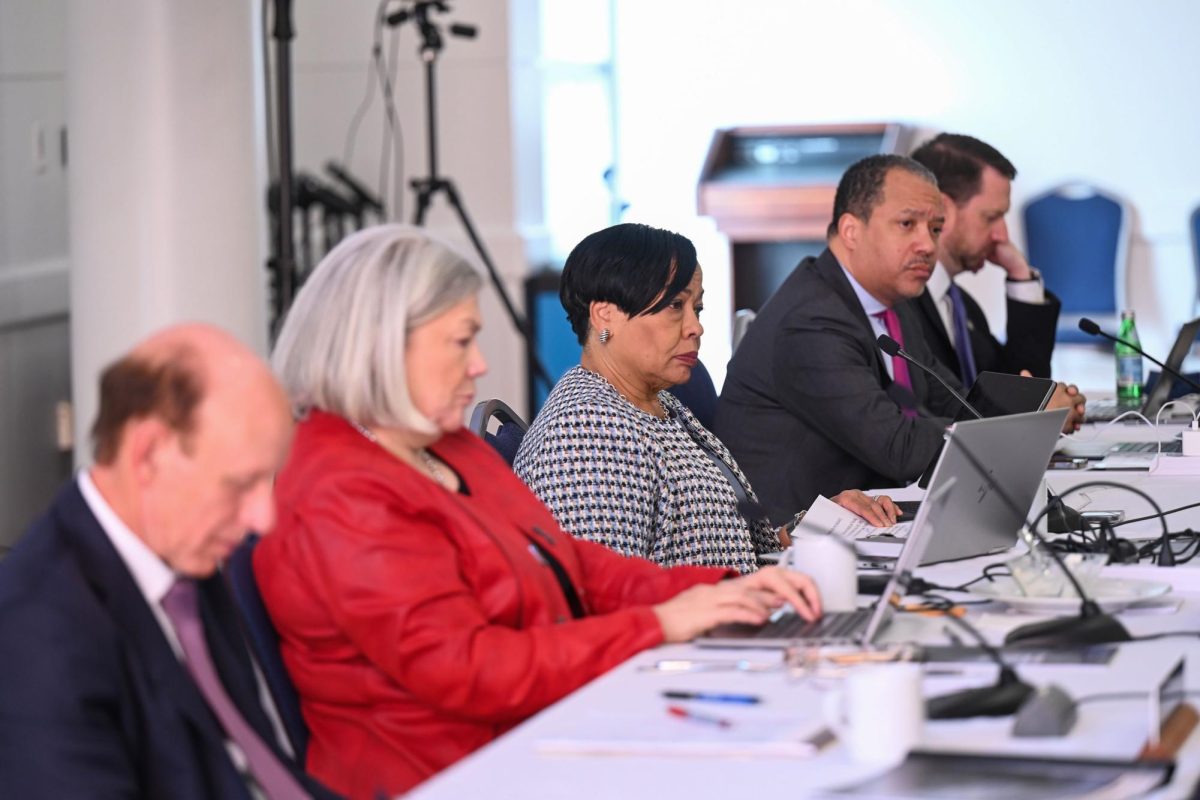Board of Trustees Chair Grace Speights said trustees will conduct a review of the Faculty Code to determine “appropriate avenues” for input from faculty at large.
Speights said in an email to faculty Wednesday, which was obtained by The Hatchet, that she had been “troubled” by some professors whose contributions have done more to “foment discord” than contribute to civil dialogue, adding that the review will be part of a broader “comprehensive assessment” of GW’s shared governance structure in conjunction with “stakeholders.” Speights’ email came the day after University President Thomas LeBlanc announced his departure at the end of the 2021-22 academic year following a year of rising tensions with faculty members.
“Successful shared governance relies on constructive engagement – something I believe has been lacking over the past year,” she said. “I am troubled by the actions of a faction of self-appointed faculty spokespersons whose contributions to this process more closely resemble a campaign to foment discord rather than civil dialogue.”
Speights did not specify the actions by faculty that prompted her email.
The Faculty Association, an independent group of professors who have consistently opposed LeBlanc and administrators, referenced LeBlanc’s departure in 35 tweets as of Thursday, some containing vulgarities and memes.
“The GW Faculty Association is gratified that the Board of Trustees and GW administration have come to agree with us and the vast majority of the GW faculty that Thomas J. LeBlanc is not the right president for our University,” the group said in a statement Tuesday. “We look forward to working with the Board of Trustees, the Faculty Senate and the faculty, staff and students of the GW community in selecting a new president with a commitment to shared governance and to making GW the excellent and equitable university it should be.”
Speights told faculty the Board supports faculty voices, but the process to receive faculty input should allow for “differences in opinion” through the senate as the faculty’s “formal representational body.”
“With change comes the opportunity to determine the right path ahead for shared governance and to define the values that will inform our decisions,” she said.











